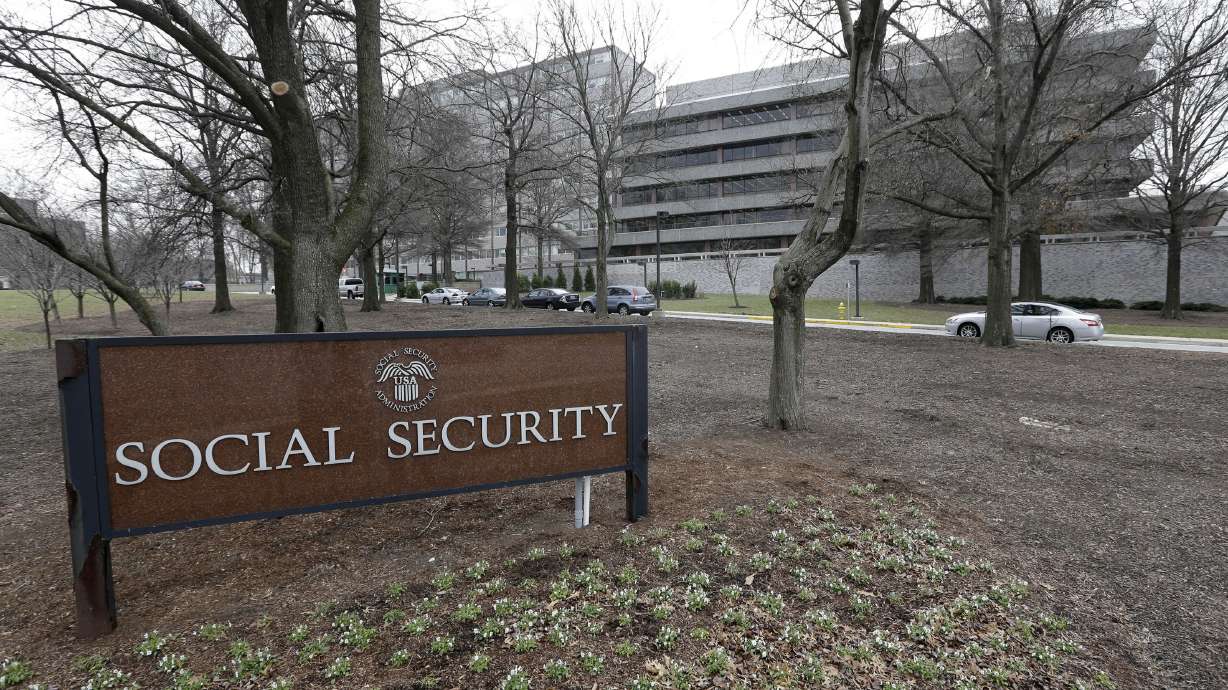Estimated read time: 3-4 minutes
This archived news story is available only for your personal, non-commercial use. Information in the story may be outdated or superseded by additional information. Reading or replaying the story in its archived form does not constitute a republication of the story.
WASHINGTON (AP) — THE ISSUE: More than 60 million retirees, disabled workers, spouses and children rely on monthly Social Security benefits. That's nearly one in five Americans. The trustees who oversee Social Security say the program has enough money to pay full benefits until 2034. But at that point, Social Security will collect only enough taxes to pay 79 percent of benefits. Unless Congress acts, millions of people on fixed incomes would get an automatic 21 percent cut in benefits.
Most older Americans rely on Social Security for a majority of their income. Monthly benefits average $1,237.
___
WHERE THEY STAND
The candidates have said little to acknowledge the issue, even though it's a main driver of the government's long-term budget problems.
Democrat Hillary Clinton has proposed expanding Social Security benefits for widows and family caregivers. That would worsen the program's finances. She says she would preserve Social Security by requiring "the wealthiest" to pay Social Security taxes on more of their income.
Unusual for a Republican, Donald Trump has promised not to cut Social Security. His campaign has suggested he'd revisit the program after his tax-cut plan boosts economic growth.
___
WHY IT MATTERS
Social Security's financial problems might seem far off. But the longer Congress waits to act, the harder it will be to save Social Security without dramatic tax increases, big benefit cuts or some combination.
Here's why:
Once Social Security's trust funds run dry, the program faces huge shortfalls that get bigger and bigger each year.
In 2034, the program faces a $500 billion shortfall, according to the Social Security Administration. In just five years, the shortfalls add up to more than $3 trillion.
Over the next 75 years, the shortfalls add up to a staggering $139 trillion. But why worry? When that number is adjusted for inflation, it comes to only $40 trillion in 2016 dollars — a little more than twice the national debt.
Why is Social Security facing these problems?
In short, because Americans aren't having as many babies as they used to. That leaves relatively fewer workers to pay into the system. Immigration has helped Social Security's finances, but not enough to fix the long-term problems.
In 1960, there were 5.1 workers for each person getting benefits. Today, there are about 2.8 workers for each beneficiary. That ratio will drop to 2.1 workers by 2040.
Despite the program's problems, Social Security could be preserved for generations to come with modest but politically difficult changes to benefits or taxes, or a combination of both.
Some options could affect people quickly, such as increasing payroll taxes or reducing annual cost-of-living adjustments for those who already get benefits. Other options, such as gradually raising the retirement age, wouldn't be felt for years but would affect millions of younger workers.
All options carry political risks because they have the potential to affect nearly every U.S. family while angering powerful interest groups. Liberal advocates and some Democrats oppose all benefit cuts; conservative activists and some Republicans say tax increases are out of the question.
But if Congress acts fast, changes can be made gradually, sparing current beneficiaries while giving younger workers time to adjust.
Each year, Social Security's trustees implore Congress to act. Here is what they said in this year's annual report: "Lawmakers should address these financial challenges as soon as possible. Taking action sooner rather than later will permit consideration of a broader range of solutions and provide more time to phase in changes so that the public has adequate time to prepare."
___
This story is part of AP's "Why It Matters" series, examining three dozen issues at stake in the presidential election. You can find the series at http://apne.ws/2bBG85a
EDITOR'S NOTE _ One in an AP series examining issues at stake in the presidential election and how they affect people
Copyright © The Associated Press. All rights reserved. This material may not be published, broadcast, rewritten or redistributed.








